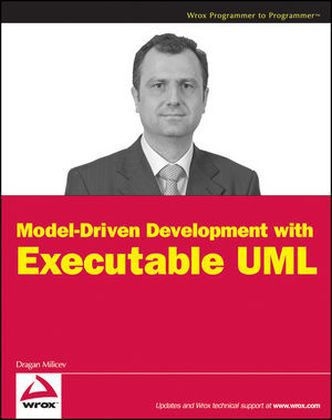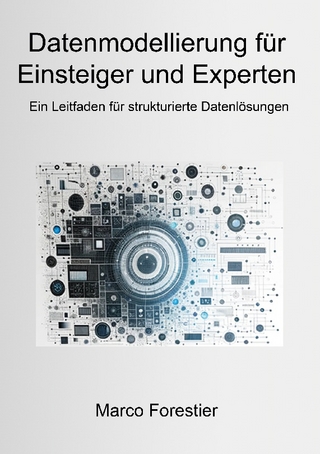
Model-driven Development with Executable UML
Wrox Press (Verlag)
978-0-470-48163-9 (ISBN)
- Titel ist leider vergriffen;
keine Neuauflage - Artikel merken
* Provides an in-depth tutorial on using model-driven development and UML for building information systems, with extensive examples * Includes tutorials and critics of traditional IS modeling paradigms, such as the relational paradigm, entity-relationship modeling, and the widely used incomplete coupling of object orientation with relational databases * Covers basic object-oriented concepts with UML semantics, like classes and data types, attributes, associations, generalizations, operations and methods * Proposes new powerful concepts for rapid development of information systems including contemporary user interfaces, such as programming by demonstration and others Model-Driven Development with Executable UML offers a thorough education in this complex topic.
Dragan Milicev , PhD , is an associate professor at the Department of Computer Science at the University of Belgrade, School of Electrical Engineering. He is the founder and CTO of Serbian Object Laboratories d.o.o. (SOL, www.sol.rs), a software development company specializing in building software development tools using model-driven technology, as well as in building custom applications and systems. With 25 years of experience in building complex software systems, he has served as the chief software architect, project manager, or consultant in more than 20 academic and international industrial projects. Of note is the fact that he was Chief Software Architect and Project Manager for most of SOL's projects and all its products: SOLoist, a rapid application model-driven development framework for information systems; SOL UML Visual Debugger, one of the world's first UML visual debuggers, designed for the Poseidon for UML modeling tool; and SOL Java Visual Debugger, a plug-in for Eclipse that enables modeling of test object structures using UML object diagrams. He has published papers in some of the most prestigious scientific and professional journals and magazines, contributing to the theory and practice of model-driven development and UML. He is the author of three previous books on C++, object-oriented programming, and UML, published in Serbia. You may contact him at dmilicev@etf.rs.
Introduction. Chapter 1: Information Systems Modeling. Chapter 2: Traditional Approaches to IS Development. Chapter 3: The Object Paradigm. Chapter 4: Getting Started. Chapter 5: Basic Language Concepts. Chapter 6: Interaction and Querying. Chapter 7: General Concepts. Chapter 8: Classes and Data Types. Chapter 9: Attributes. Chapter 10: Associations. Chapter 11: Constraints. Chapter 12: Querying. Chapter 13: Operations and Methods. Chapter 14: StateMachines. Chapter 15: Collaborations and Interactions. Chapter 16: Commands, Presentation, and Architecture. Chapter 17: About theMethod. Chapter 18: Conceptual Modeling. Chapter 19: Modeling Functional Requirements. Chapter 20: Characteristics of Information Systems. Chapter 21: Process and Principles of Software Development. Chapter 22: The Relational Paradigm. Chapter 23: Structured System Analysis. Chapter 24: Introduction to the Object Paradigm. Appendix A: References and Bibliography. Index.
| Erscheint lt. Verlag | 7.7.2009 |
|---|---|
| Reihe/Serie | Wrox Programmer to Programmer |
| Zusatzinfo | Illustrations map,. |
| Sprache | englisch |
| Maße | 190 x 229 mm |
| Gewicht | 1212 g |
| Einbandart | Paperback |
| Themenwelt | Mathematik / Informatik ► Informatik ► Programmiersprachen / -werkzeuge |
| Informatik ► Software Entwicklung ► UML | |
| ISBN-10 | 0-470-48163-3 / 0470481633 |
| ISBN-13 | 978-0-470-48163-9 / 9780470481639 |
| Zustand | Neuware |
| Haben Sie eine Frage zum Produkt? |
aus dem Bereich


